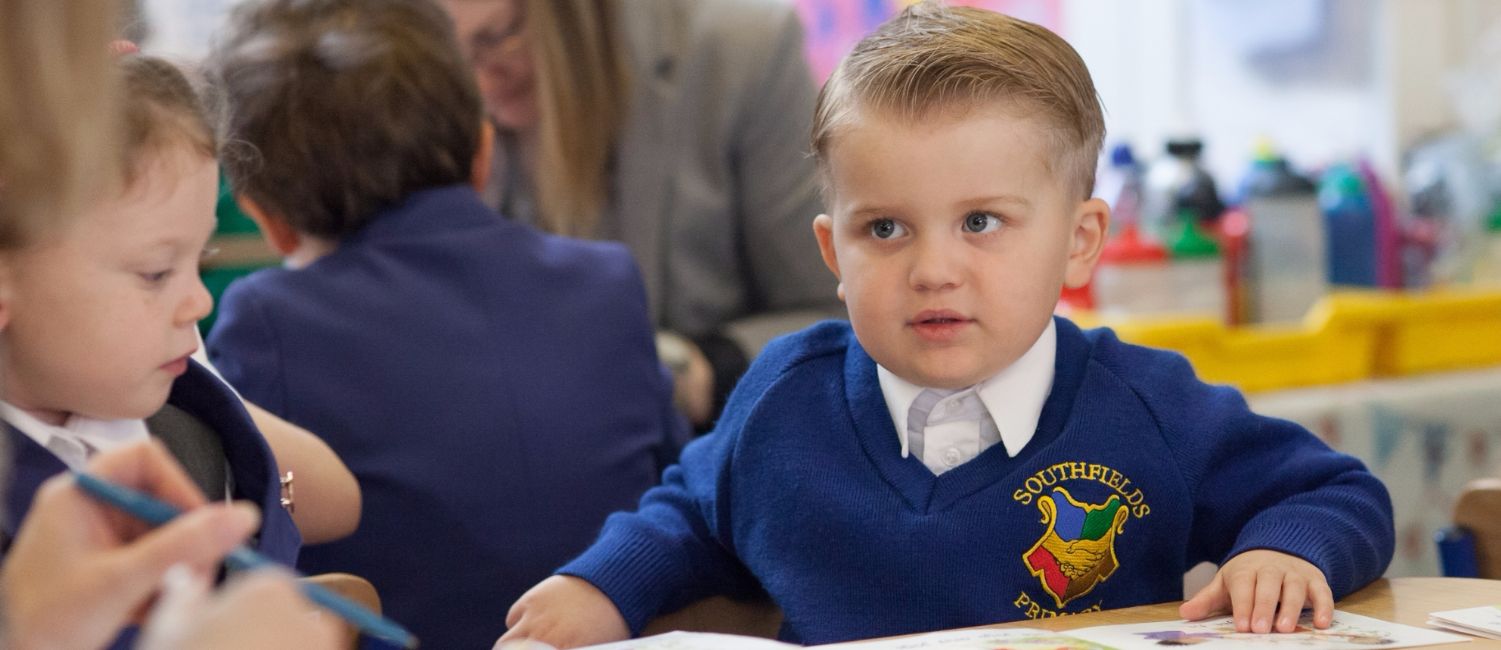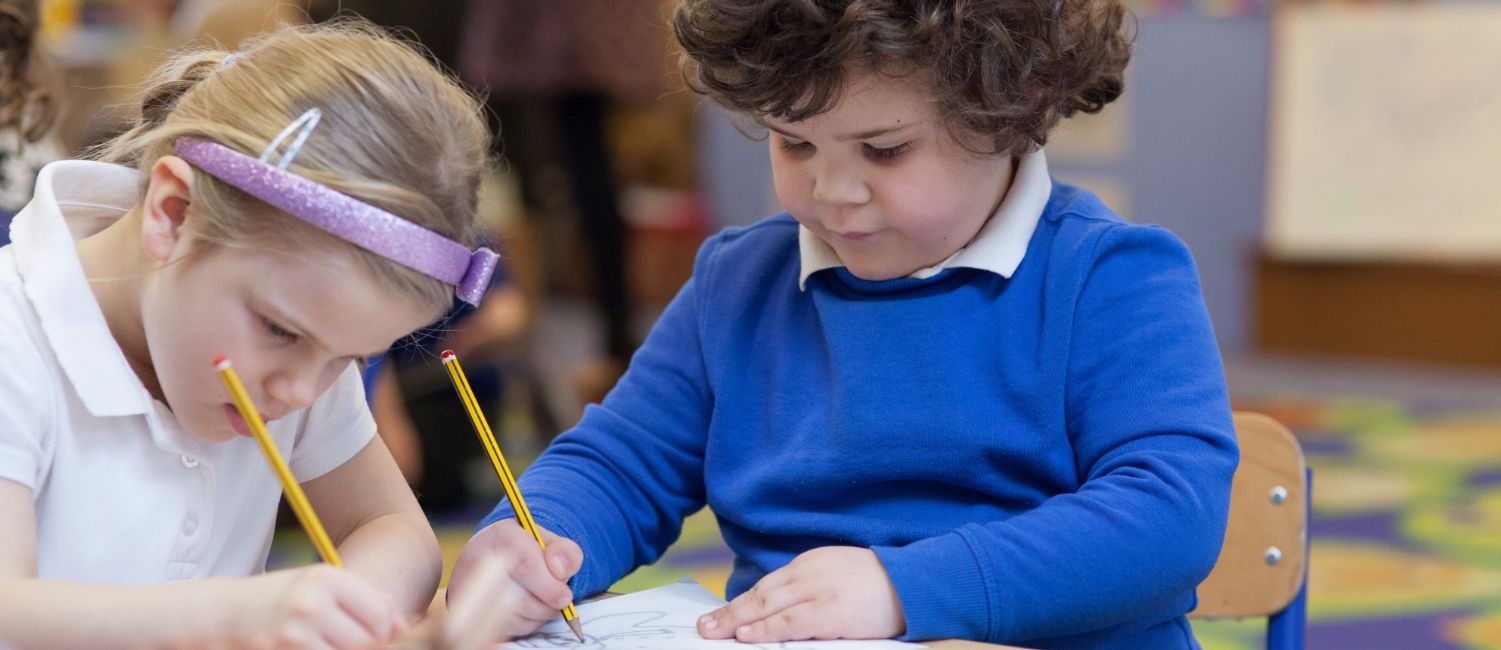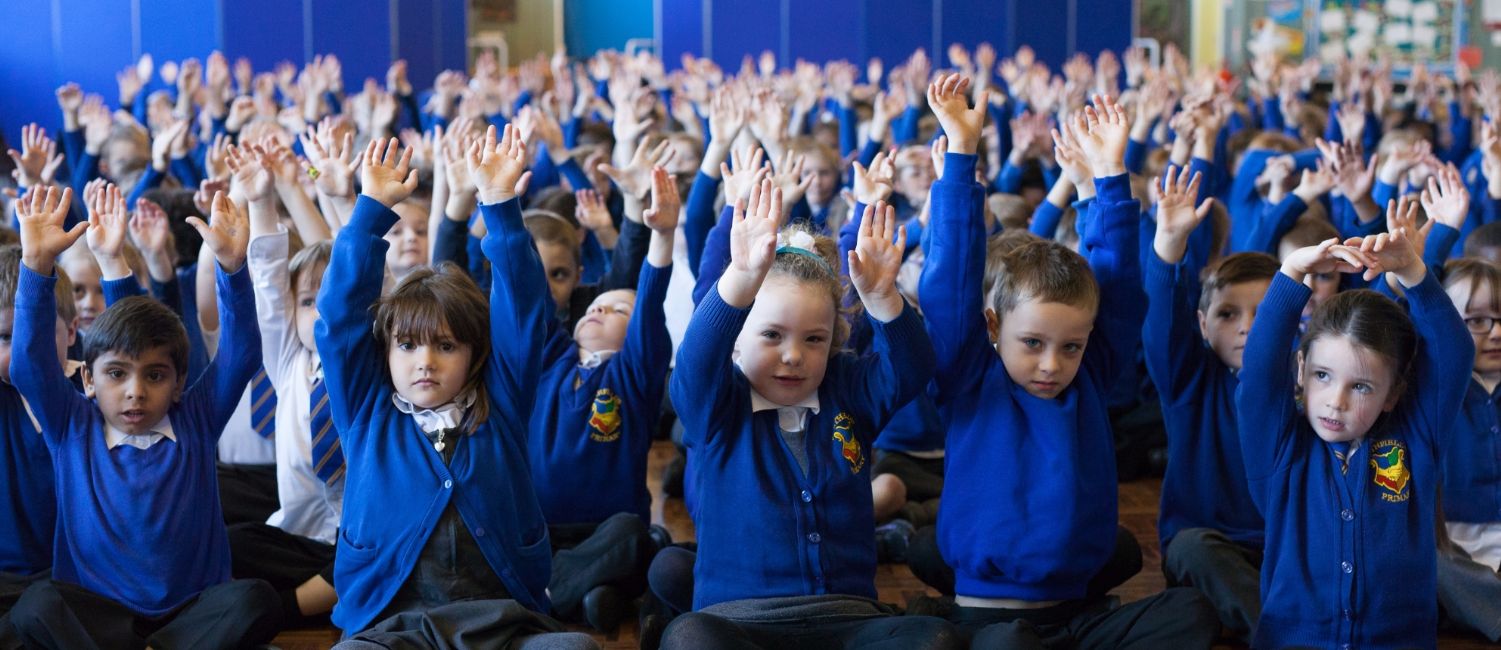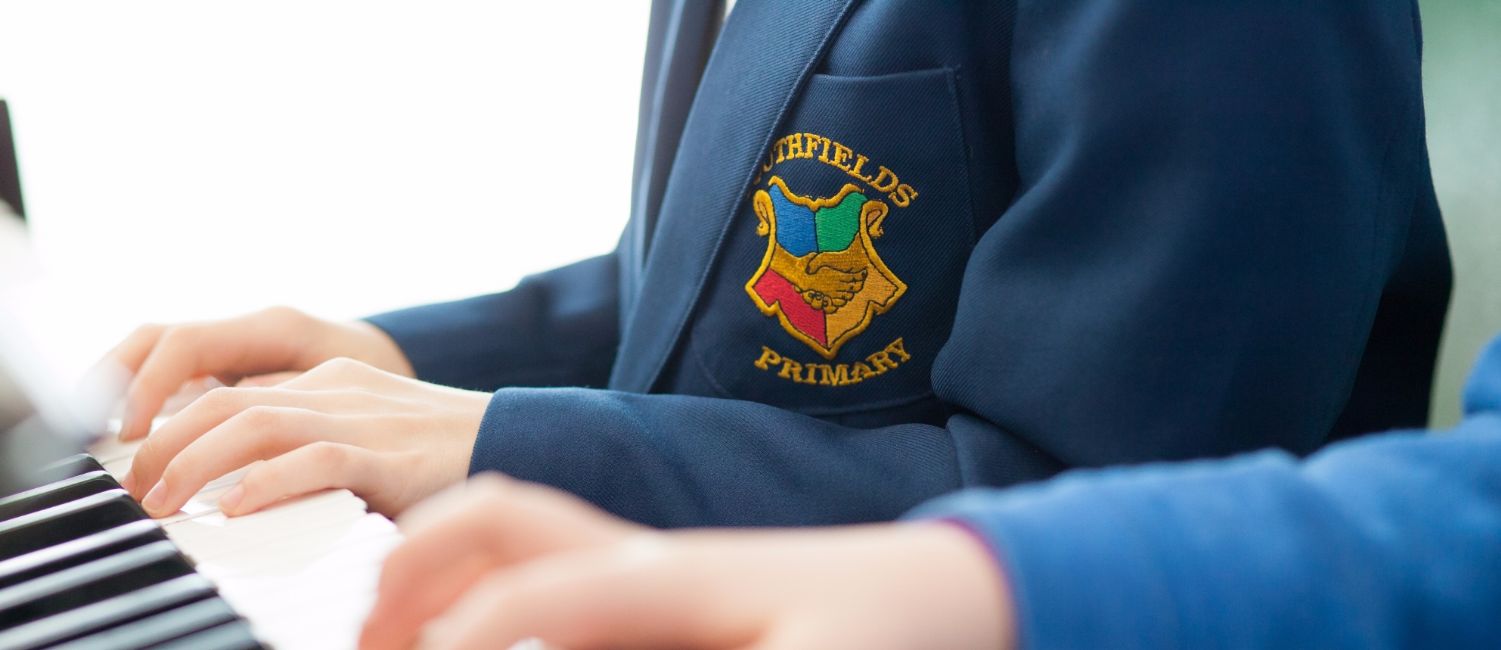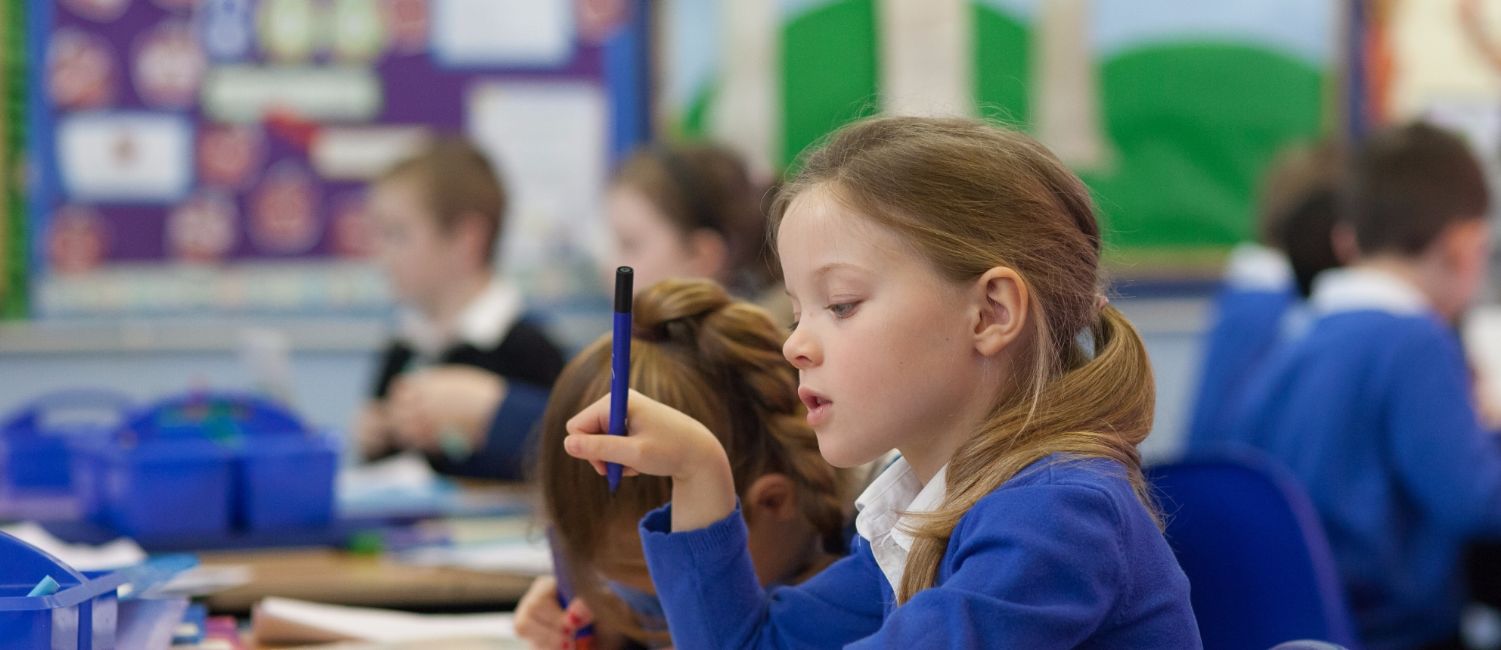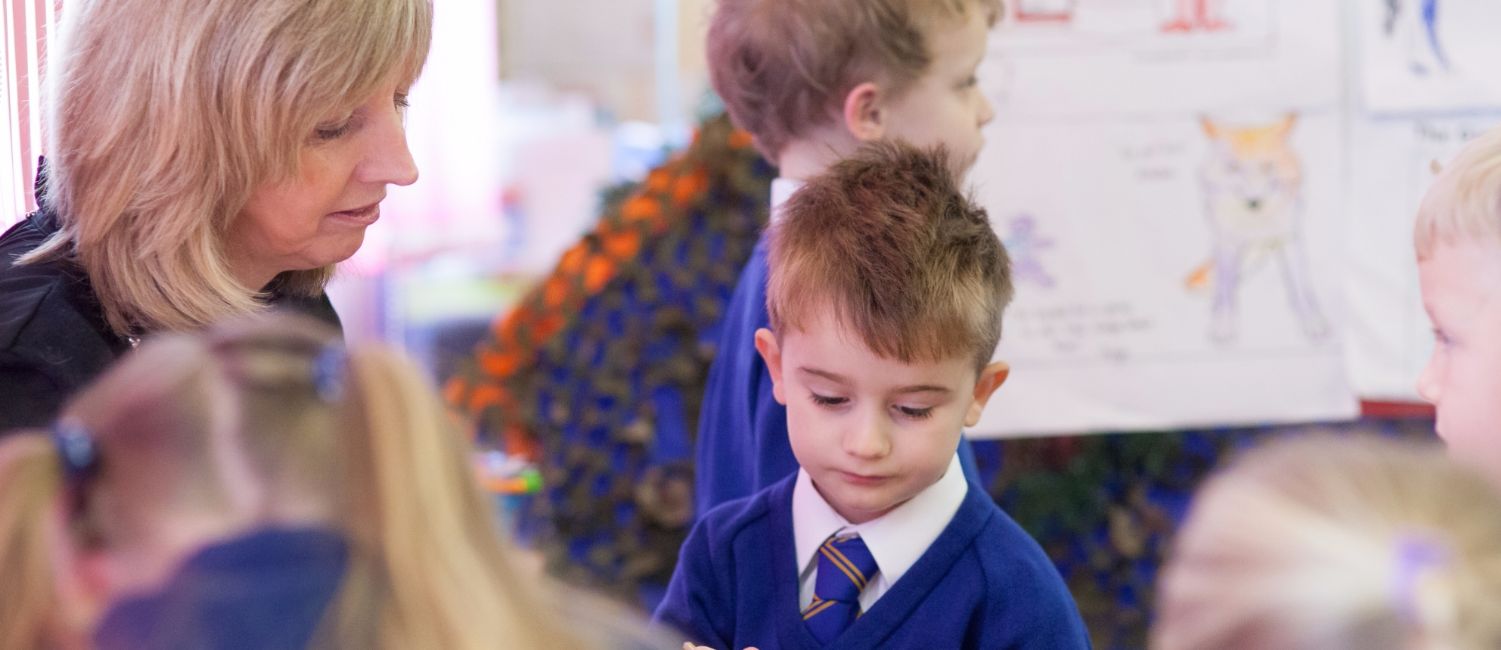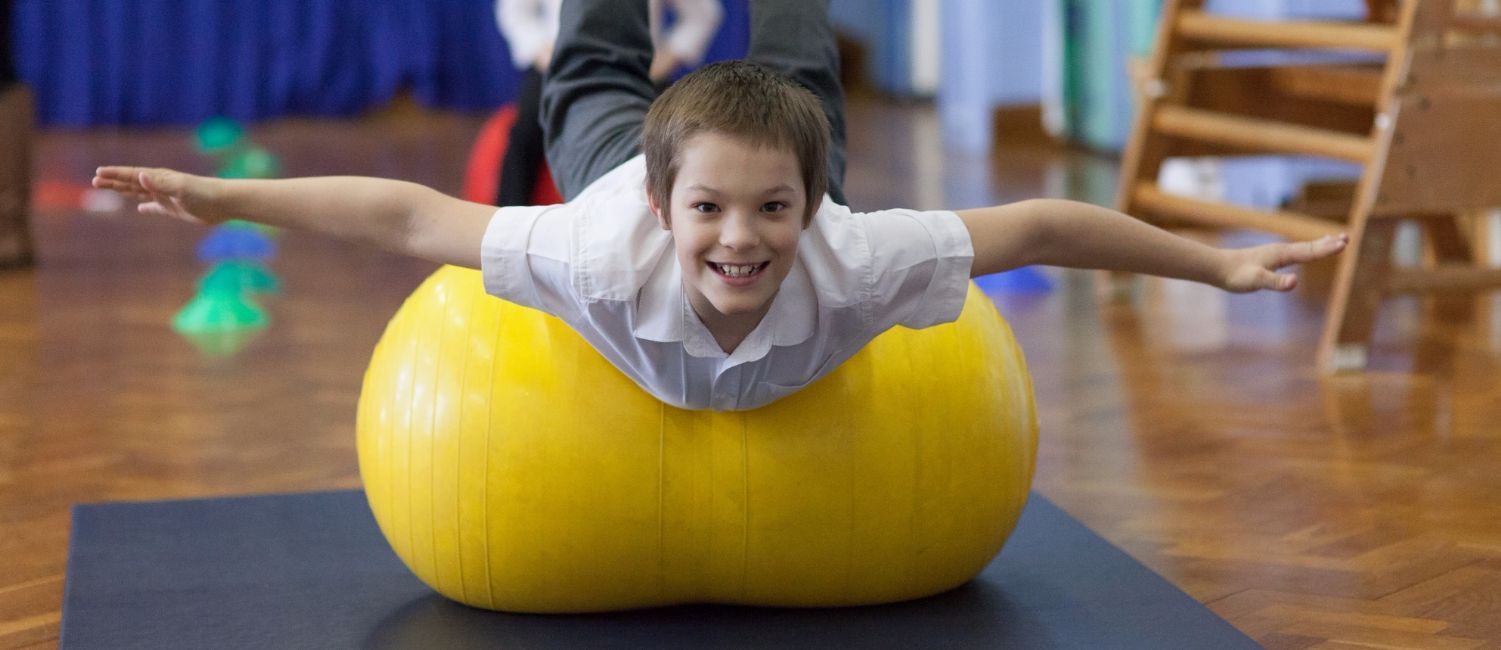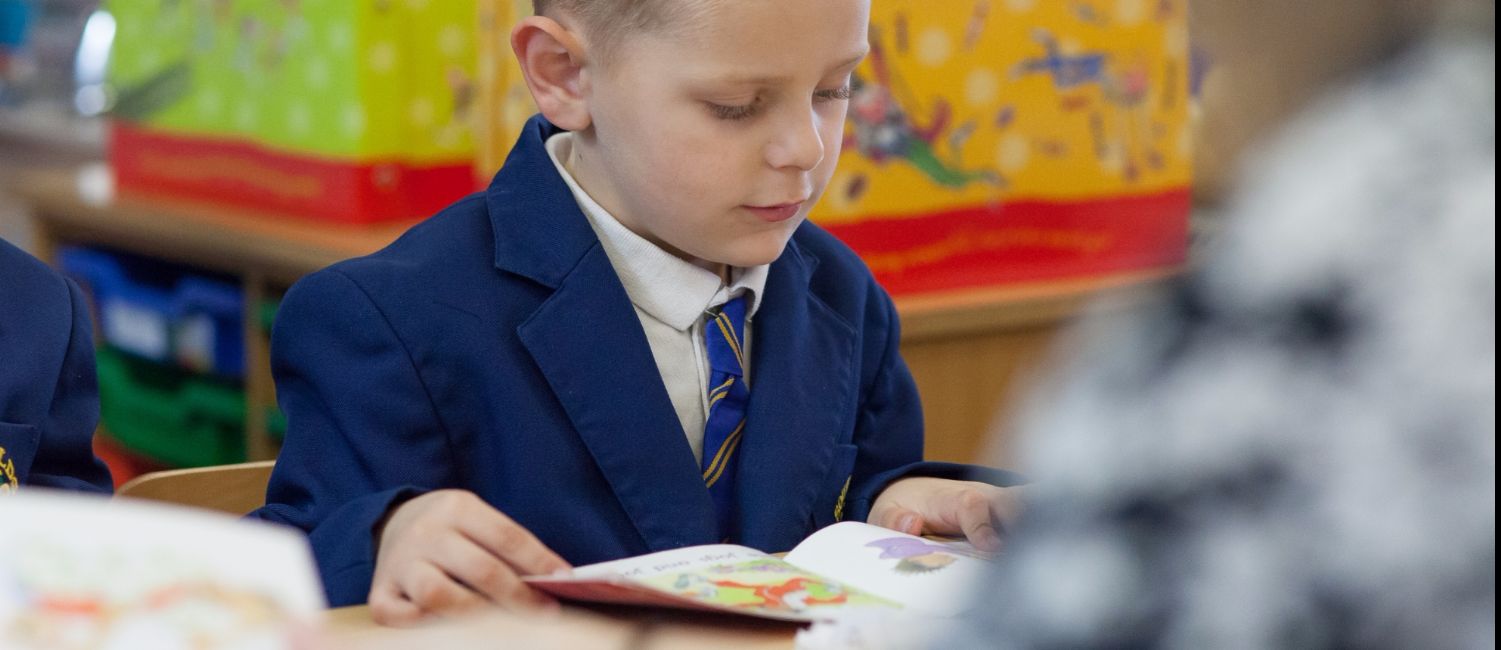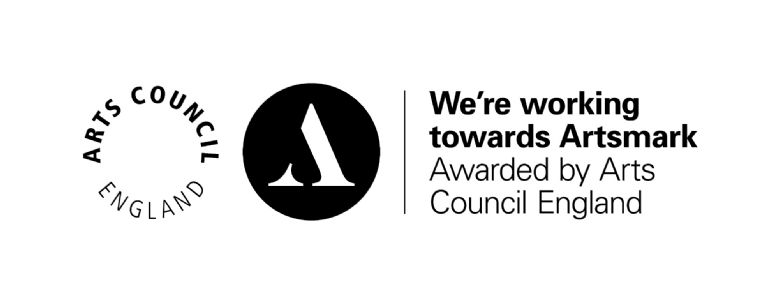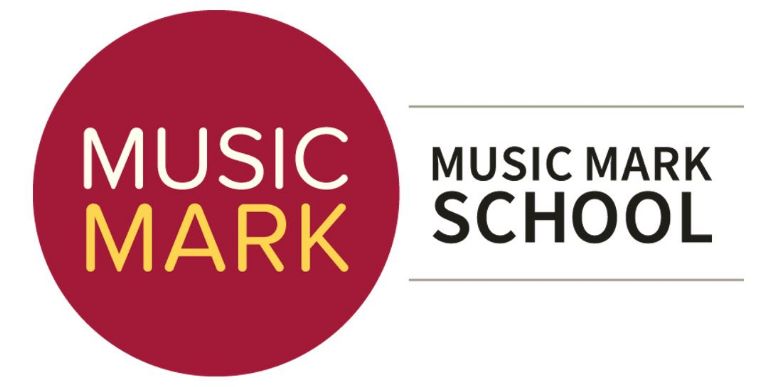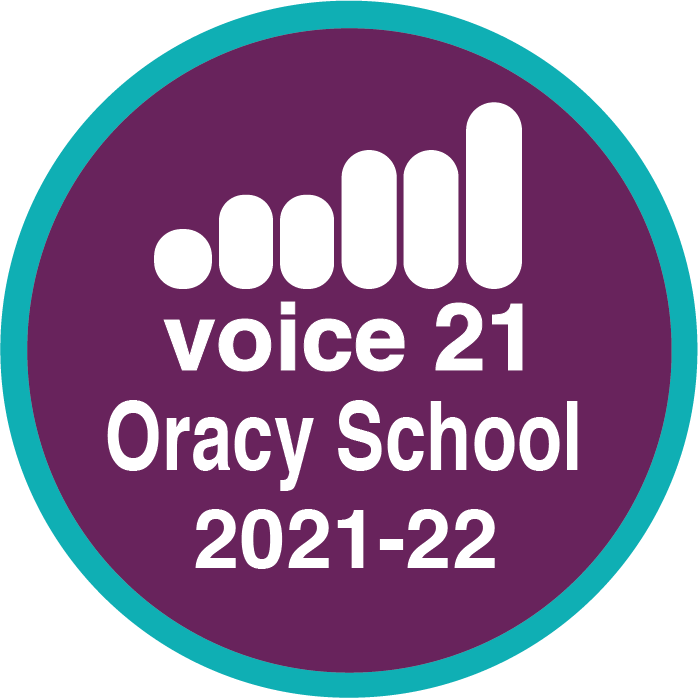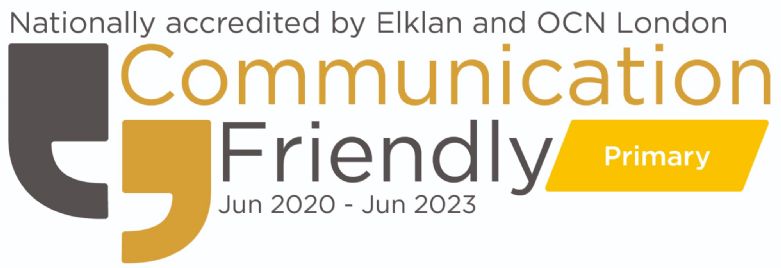Learning
Education at Southfields
Our Mission, Vision and Aims
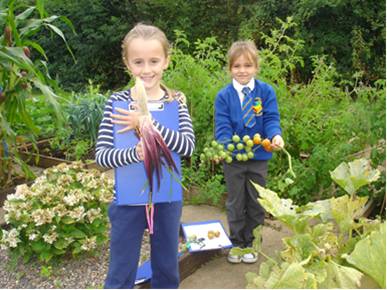
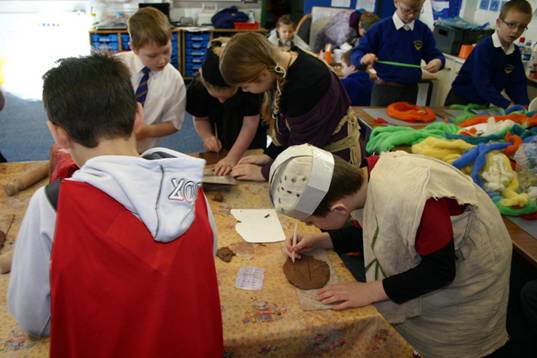
Our School Mission Statement
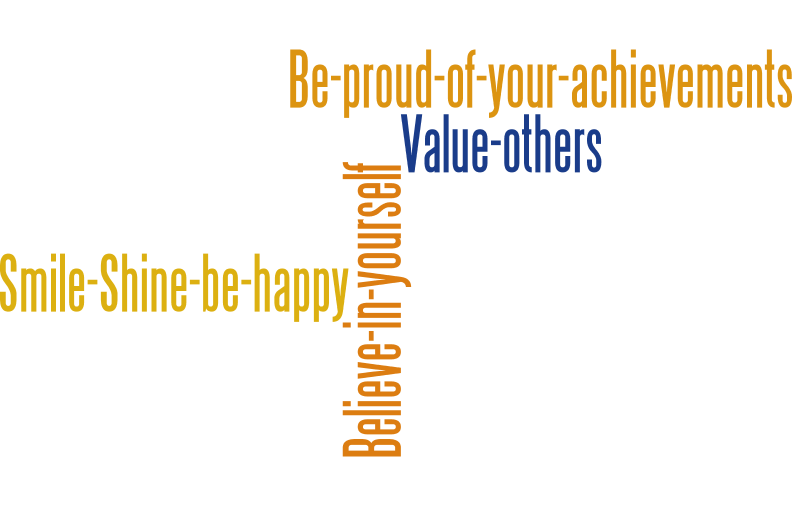
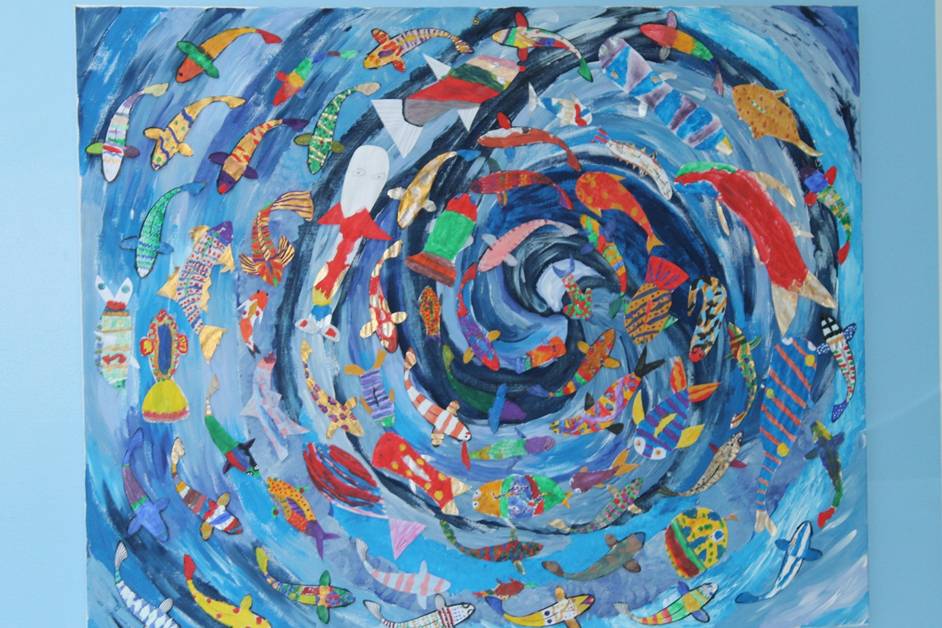
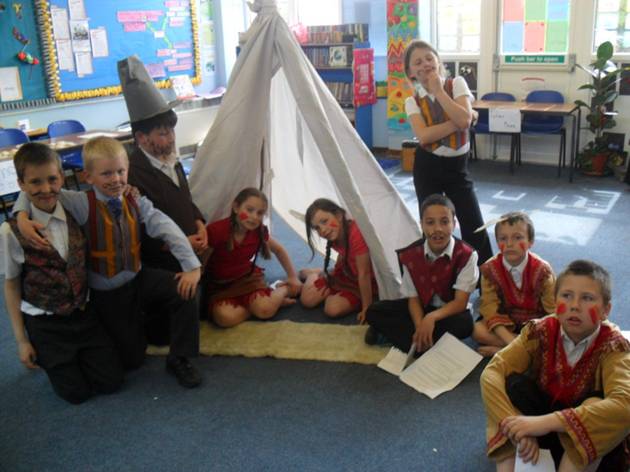
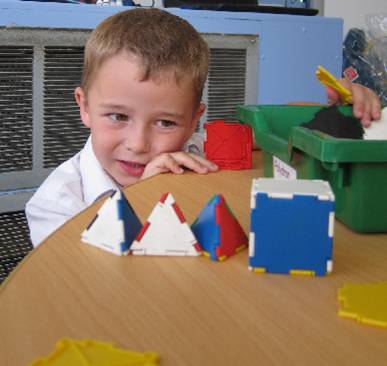
School Ethos
Southfields Primary School provides an outstanding education within the context and understanding of shared values. We believe all children should be taught kindness, care, consideration, co-operation, resilience, honesty, respect, hard work, perseverance and openness.
We believe in the magic of childhood and our children are encouraged to enjoy and achieve as individuals, as part of a team and as a school. We believe in having a positive approach towards school life and children are supported to become highly motivated, hardworking and confident.
The school has been successful for many years and has embedded traditional family values, whilst being forward thinking in providing the very best education for the whole school community.
Southfields is a National and Local Leading School supporting and work in partnership with other schools to raise standards. The Head Teacher is a National Leader of Education - currently the only one in Peterborough.
It is recognised for its work in Environmental Education, Sustainable Schools, Arts, Academic Study and has the unique feature of teaching Music as a core subject. Throughout your child's time at the school they will be taught four instruments and, in addition to this, we have fourteen additional instruments that can be learnt with peripatetic teachers. We also have a choir which works at a national and international level with specialist voice training.
At Southfields we believe that 'Every Child is an individual and important' therefore we promote an ethos where every child, irrespective of background or circumstances, has the support they need to be healthy, stay safe, enjoy and achieve and make a positive contribution to the world around them. We work hard to develop life skills to achieve economic wellbeing in the future and become a valued citizen who makes a positive contribution. These aims and values are at the heart of everything the school does and are reinforced through our school environment, lessons, events, routines and our out of school provision this also includes links with the wider community.
We have three fundamental aims which enable the children to become successful learners, confident individuals and responsible citizens who make a positive contribution to society.
Aims of the School
- Ensure that every pupil is supported to make progress and flourish within our school with many wonderful learning experiences
- Ensure basic skills are embedded in the curriculum to refine and practice English and Mathematics as well as Science, humanities, computing, design and technology as well as the Arts and Music.
- Create an interesting and stimulating environment, which reflects our values and promotes a sense of community as well as an individual sense of self worth.
- Provide a broad and balanced curriculum with high expectations and outstanding outcomes.
- Develop a community of life-long learners where access to knowledge is a right and a recognised achievement.
- Provide learning experiences that allow all pupils equal opportunities.
- Provide opportunities for children to develop lively and enquiring minds.
- Promote social, cultural, moral and spiritual development, preparing pupils to be responsible citizens.
- Encourage partnership with parents/carers and foster positive links with the community.
- Encourage kindness, honesty and respect in a school that makes sustainable choices to foster a care for the future.
We believe the most effective way of achieving these aims is through the promotion of enquiry and curiosity, enthusiasm and challenge, sharing and learning together, the acceptance and embracing of differences, openness, respect and perseverance.
Our school aims are to be an inclusive school where all children are welcome and feel happy and look forward to their school day. Every child is different and we view those differences as opportunities for adults and children alike to learn more from each other.
We work hard on supporting children with Special Educational Needs and our school practice and policy is revised every year. The policy is available from the parents' library. Our aim is for all children to have access to all aspects of school life, as far as is reasonable and practical. Southfields is already a very inclusive school and has been awarded the Peterborough Inclusion Charter Mark.
The School Curriculum
The school's curriculum combines high standards with a broad and rich curriculum. Great emphasis is placed on planning so that there is continuity, progression, challenge and pace.
Our curriculum is well planned, creative and vibrant. It is designed to have ‘programmes of study' which set out the essential knowledge, understanding, skills and attitudes to be covered throughout the school. We have also allowed flexibility to meet individual pupil needs and strengths. We have many cross-curricular studies which provide opportunities for children to enrich and enhance their learning and make connections with other parts of the curriculum, as well as further develop and encompass some excellent opportunities in the world around them.
We have developed our curriculum using six areas of learning for Years 1-6
- Understanding the arts - exciting children's imaginations about the arts and developing their creativity
- Understanding English, communication and languages - developing children's communication and language skills
- Historical, geographical and social understanding - stimulating children's curiosity about the past and the present, and their place in the world
- Mathematical understanding - developing children's understanding of mathematics and its use in everyday life
- Understanding physical development, health and wellbeing - developing children's understanding of what makes a healthy, active and fulfilling life
- Scientific and technological understanding - developing children's understanding of the natural and man-made worlds and their curiosity and inventiveness.
At Southfields we believe in every child being treated as unique. We nurture our children to be resilient, capable, confident and self assured. We encourage them to develop positive relationships which support them as learners and in develop their self-confidence. We believe that an outstanding, learning environment, both internal and external, enhanced by wonderful resources will extend and develop learning. At Southfields, we strive for outstanding standards in teaching and learning, high quality assessments and an excellent partnership with parents and carers.
This year the school will be piloting the new recommendations in enhancing the curriculum and the key areas are as follows:
- Knowledge and understanding of the world
- Problem solving, reasoning and numeracy
- Creative development
- Communication, Language and Literacy
- Physical development
- Personal, social and emotional development
Core Subjects Yr 1-6
English
During the academic year children will be taught using the new revised framework for Literacy. The Literacy objectives are now split into 12 strands, as follows:
- 1. Speaking
- 2. Listening and responding
- 3. Group discussion and interaction
- 4. Drama
- 5. Word recognition: decoding (reading) and encoding (spelling)
- 6. Word structure and spelling
- 7. Understanding and interpreting texts
- 8. Engaging and responding to texts
- 9. Creating and shaping texts
- 10. Text structure and organisation
- 11. Sentence structure and punctuation
- 12. Presentation
English includes:
- Speaking and Listening
- Reading
- Writing
English is an integral part of the whole school curriculum and has many cross-curricular links within daily teaching.
Speaking and Listening
Speaking is fundamental to a pupil's learning. Pupils are encouraged and helped to speak clearly, confidently and with expression in order to communicate ideas and feelings. Similarly, and just as important is the need to listen to others and respond appropriately. All children are provided with opportunities in all areas of the curriculum to develop skills in speaking and listening. As a school we assess children in their speaking and listening, and the children will have records of achievement to track their progress and set challenging targets.
Reading
We believe that reading should be an enjoyable activity, and that one of the greatest gifts we can give a child is the ability to read. Our approach to reading is based on an emphasis on the teaching of phonics; once this skill is embedded, we extend and develop each child's reading skills. We dedicate 20/30 minutes daily to teaching, during which time the children are given a range of activities that take forward their learning, comprehension and skills. In each year we have whole-class books which are studied by all the children. In addition to specific guided reading, we have 15 minutes of selected reading "Lighthouse", where classic novels, important to the children's appreciation of the amazing world of books, are read and shared. These books have been selected to inspire class teaching and reading, of which there are 76 classic novels in Key stage one and reception, and 36 in year three to six.
We aim to develop a love of reading and therefore encourage our pupils to take books home and share them with you. Children need to be able to read with understanding, for pleasure and for information. We have found that just ten minutes' one-to-one reading at home with an adult can make a huge positive difference to the children, and therefore we have included this as part of homework each evening. Parents are asked to complete the reading record; teachers may use this record from time to time, but do keep their own extensive notes within school.
Pupils' reading is formally assessed termly and the children use a variety of schemes and guided work to improve their skills, ability and confidence. As pupils go through the school, they are given more responsibility for selecting materials to read. We have free-reading extension books that will challenge pupils above the level of reading schemes. These free-reading books are designed to encourage children to become lifelong readers. Your child maybe selected for APP assessments in R/W/S&L and evidence portfolio's are kept. This will be communicated to parents if your child is selected.
We have two large reading bays and a well-resourced library with an extensive selection of fiction and non-fiction books. We also have an area for big books and group reading. Each classroom has a reading corner and listening station. Children rotate daily to read different materials in the Reading Roundabout, which develops a range of reading experiences throughout the week.
Children read to the class teacher weekly through guided reading sessions and are also expected to read at home each night as part of their homework. We send home a reading book and reading record that we ask parents to complete during the evening.
Writing
Pupils are helped to develop the ability to express their thoughts, ideas and communication skills through the written word. Every attempt is made to ensure that pupils develop a command of basic English which includes punctuation, spelling, grammar and correct letter formation. For handwriting, we use the Nelson scheme. The children have regular lessons until their writing is fluent and joined.
We believe it is important that children see their work as having purpose and that they regard themselves as authors of their work. Opportunities are provided for pupils to develop the necessary writing skills required for different purposes and audiences. The link between reading and writing is strongly emphasised.
Each child at Southfields is given a personal writing log, which tracks their written progress throughout their time with us. It allows both pupil and teacher to see improvement over seven years.
At Southfields we believe that it is important for children to learn all the different written genres and therefore we teach them how to write in three different phases.
- 1. Phase 1 - immersed in the text type
- 2. Phase 2 - learn the necessary skills to write in the genre style, eg. imperative verbs for instructional texts
- 3. Phase 3 - the writing of the genre
We assess the children using "APP" resources; keep ongoing records and tracking to reflect and assess the work your child completes. This assessment provides an invaluable ongoing record of achievement.
We have agreed basic standards throughout the school and children will work to reach these standards. Individual children may need additional support through projects, 1:1 tuition, group work and have regular work to further develop their skills to reach year group standards where appropriate.
Science
We aim to develop the pupils' scientific skills and understanding through first-hand experiences. Pupils are encouraged to solve problems by making close observations, planning, predicting, fair testing, measuring and recording their findings in a systematic way. The wide spectrum of study gives children a foundation through the three disciplines of Physics, Chemistry and Biology.
Having such a foundation will help to nurture a sense of excitement and curiosity about the world in which the children are growing up and allow them to explore it with a scientific set of skills. We hope also to foster responsible attitudes towards the environment and all living things.
At Southfields Primary School, we follow the guidlines within the National Curriculum Programme of Study (2014) for Science. We have a range of resources to support and enhance the learning and teaching of Science throughout the school, including: a 'Science Laboratory Bench'; a large environmental area and pond; an outdoor Science park and many other classroom based resources available for the children to use. Provision is also given to children who show a particular interest or skill and want to develop their mastery of Physics, Chemistry, Biology or working scientifically.
Multi Media and Information/Communication Technology (ICT)
We are proud of our ICT provision at Southfields. We believe that ICT should be embedded in Teaching and Learning and is a tool which is used to enhance pupils' learning ability.
We have mini suites within each classroom in addition to sets of I pads, I pods, Nintendos 3DS Nintendos, Playstations, Digital Cameras, Green Screens, Digital Video Cameras and sound Equipment. All of this is used to support and enhance education throughout the school.
We also have a designated ICT suite for publishing, Lego, film, photography and electronic music which includes garage band.
We teach children to use Microsoft and Apple software packages. We enter competitions for our work in ICT and use it as a medium to assess and record learning.
Religious Education and Collective Worship
The aim of religious education is to enable pupils:
- To acquire knowledge and understanding of the principal religions represented in Great Britain
- To develop the ability to explore, to reflect on and to respond to human experience, drawing on their study of religion
Through Religious Education, pupils are given opportunities to reflect on the nature and role of beliefs, the attitudes and values underpinning these, and the practices and behaviours that arise because of them. Skills developed through the teaching of RE include developing self-awareness, respect for all, open-mindedness, appreciation and wonder.
RE is taught in all classes and follows the procedures and guidelines agreed by Peterborough LA Agreed Syllabus. Parents have the right to withdraw their child from RE lessons and religious assemblies if they wish. You will need to talk to the Headteacher before doing so. Alternative provision will be made for your child.
We have daily Collective Worship. Each daily act of worship focuses on different aspects, including PSHCE and the wider community, and how people in the past have taught us, Every Child Matters, religious stories learning about and from different religions, religion linked to whole school curriculum teaching and learning and a celebration assembly. The school has no affiliations to any specific religion but does have regular contact with St John's Church in Stanground which pupils visit for the Christingle and Easter service. As part of the RE programme, the children visit other places of worship including the Mosque and the Cathedral.
Foundation Subjects
History
History is taught through themes and each topic begins with a box of interesting artefacts. The children visit various locations to learn more about history, they study the local area and have dress up days, they fight Greek battles, and are evacuated into the Second World War for the day. History is brought to life through practical experiences, visits and visitors.
Pupils consider how the past influences the present, what past societies were like, how these societies organised their politics, and what beliefs and cultures influenced people's actions. As they do this, pupils develop a chronological framework for their knowledge of significant events and people. Pupils will develop skills through researching, sifting through evidence and engaging in active discussion - skills that will prepare them for adult life.
Geography
Geography is embedded in much of the work that takes place at Southfields. It provokes and answers questions about the natural and human world. Children are encouraged to explore the world around them; they use local resources, educational visits, residential visits, and contrasting localities to bring life to their learning. We develop knowledge of places and environments throughout the world, an understanding of maps, and a range of problem-solving and investigative skills both inside and outside the classroom. Geography develops the ability to understand and resolve issues about the environment. We believe that the children should be also taught traditional aspects of world geography through additional topics, such as "Where in the world is Tidy Tiger?"
Music
We have a full time Music Director who supports classroom based learning along with 1:1 lessons and group work. The Music Director also leads ensembles and choir.
Pupils are encouraged to sing, compose and use percussion instruments in order to develop their creative skills. Through active listening, pupils' awareness and understanding of different periods, styles and genres are developed. All children are taught to play the recorder and read music, and all children are taught to sing. Children are given the opportunity to join the school choir, and can have individual instrumental lessons in trumpet, clarinet, flute, violin, saxophone, drums, electric guitar, classical guitar and Spanish guitar. The children are taught about different styles of music. In Year 5, children have the opportunity to visit the theatre in London.
All pupils from Reception - Year 2 are voice trained and some children in reception are selected for violin. In Year 1 all children are taught the ocarina and in Year 2 the recorder, where the children are all taught musical notation. Year 3 pupils are all taught the violin or cello. In addition to this, the children in year 3, 4, 5 and 6 learn to play the recorder, guitar and are taught to read music. We also offer a range of other instrument tuition with 12 additional instruments. Please see music arrangements for more details - these lessons are subsidised by the school.
Creativity and Arts
Creativity and the Arts are embedded into the curriculum at Southfields. Children are taught to express themselves with creativity and art appreciation is taught to all children. We encourage pupils to develop their creative and imaginative talents through learning skills and techniques and using a variety of materials and tools. Pupils also learn to appreciate works of art and use artistic language to describe paintings, sculptures and other artefacts. In Year 5, children have the opportunity to visit the Tate Gallery and National Gallery. During the year the whole school takes part in a week of art, where all children learn and study together about artists and art around the world. We run many art competitions for children and families. We have arts clubs and opportunities for Gifted and Talented children to develop their skills further.
Modern Foreign Languages
The school has traditional links with Italy due to many Italian families settling in Stanground which now has a third generation Italian community. The Italian Consulate fund the school to have an Italian teacher each year who works with various year groups. We teach French or German, as well as the classical language Latin in Year 6. We also have provision to teach a range of languages through "Eurotalk": French, German, Spanish, Polish, Italian and English. We have an internet cafe and an international cafe.
Design and Technology
We provide our pupils with opportunities to work with a variety of materials such as wood, clay, textiles. They are helped to develop skills around planning, designing, construction and evaluation. Food Technology provides opportunities to learn about diet, nutrition, food safety, hygiene, preparation and cooking as well as where food comes from. Children do cookery for half a term each year and take home their produce. At lunch times we have equipment to enable children to learn through play, in order to aid their construction skills.
Physical Education
We aim to develop agility, co-ordination and confidence through physical activity. All pupils have two sessions of PE a week, covering dance, gymnastics, swimming, games and athletics. We encourage a competitive spirit while recognising the value of co-operation, fair play and teamwork. We have cricket, netball and football teams who play both competitive and friendly matches throughout the year. We work closely with Stanground College and access specialist instructors and equipment to promote the highest quality PE possible.
We have a swimming pool on site for Years 2 - 6 and children have the opportunity for deep-water swimming in the pool at Stanground College. Southfields has a ‘Traditional Sports Day' held in the summer term. We also host city events with the ‘Sports Spectacular' for netball and football. We also take part in the Peterborough Dance Festival. All children are taught to dance and become good team players through enrichment activities.
The Wider Curriculum
Personal, Social, Health Education and Citizenship (PSHCE)
PSHCE helps to give pupils the knowledge, skills and understanding they need to lead confident, healthy, independent lives and to become informed, active and responsible citizens. Pupils are encouraged to take part in a wide range of activities and experiences, including circle time, across and beyond the curriculum contributing fully to the life of their school and community. In doing so they recognise their own worth, work well with others and become increasingly responsible for their own learning. They reflect on their experiences and understand how they are developing personally and socially, tackling many spiritual, moral, social and cultural issues. They find out about the main political and social institutions that affect their lives and about their responsibilities, rights and duties as individuals and members of community. They learn to understand and respect our common humanity; diversity and differences so that they can go on to form the effective, fulfilling relationships that are an essential part of life and learning. At Southfields we also follow the Social and Emotional Aspects of Learning (SEAL) Programme, which is an explicit, structured, whole curriculum framework and resource for teaching social, emotional and behavioural skills to all pupils. Our School and Class Councils help pupils to further embed SEAL issues within our school as well as focusing school improvement work.
Health Education
Many aspects of looking after ourselves are covered in the school's curriculum as well as the programmes of study in the Science National Curriculum Framework. We aim to give pupils a greater understanding of themselves by covering aspects of diet, hygiene and exercise. The children undertake a programme of study which builds on their understanding of Sex and Relationships.
Sex Education is defined as ‘learning about physical, moral and emotional developments' (ref.DFEE 0116/2000).
Supported by the school's PSHCE scheme of teaching, the children undertake a programme of study which builds on their understanding of Sex and Relationships. In Reception and Years 1 and 2 children learn to value their body, look at personal hygiene, study why families are special and how they care for each other and learn basic rules for keeping themselves safe and healthy. In Year 3 and 4 children build on previous learning and study family roles and relationships along with looking at changing bodies and their own responsibilities for personal hygiene. They also learn how to support friends and manage friendship issues. In Year 5 and 6 the children are taught to recognise the pressure of unwanted physical contact and how to deal with these issues along with identifying adults they can trust, they discuss changing emotions and learn the importance of valuing themselves. The community nurse supports the school with more detailed teaching and learning on these topics. Across all of these topics teaching takes into account the diversity of lifestyles, cultures and beliefs.
Parents have the right to withdraw their children from Sex Education and should contact the Head Teacher if they wish to do so. The policy is available from the parents' library.
Early Years Foundation Stage
The Reception Curriculum
Every child deserves the best possible start in life and the support that enables them to fulfill their potential. Children develop quickly in the early years and a child's experiences between birth and five have a major impact on their future life chances. A secure, safe and happy childhood is important in its own right. Good parenting and high quality early learning together provide the foundation children need to make the most of their abilities and talents as they grow up.
The Early Years Foundation Stage (EYFS) sets the standards that all Early Years Providers must meet to ensure that children learn and develop well and are kept healthy and safe. It promotes teaching and learning to ensure children's ‘school readiness' and gives children the broad range of knowledge and skills that provide the right foundation for good future progress through school and life.
There are four overarching principles that shape the EYFS. These are:
- Every child is a unique child, who is constantly learning and can be resilient, capable, confident and self-assured;
- Children learn to be strong and independent through positive relationships;
- Children learn and develop well in enabling environments, in which their experiences respond to their individual needs and there is a strong partnership between practitioners and parents and/or carers;
- Children develop and learn in different ways and at different rates. The framework covers the education and care of all children in early years provision, including children with special educational needs and disabilities.
The areas of learning and development
Within these overarching principles of the EYFS, there are seven areas of learning and development which shape the educational programmes at Southfields. Three of these areas are particularly crucial for igniting children's curiosity and enthusiasm for learning; and for building their capacity to learn; form relationships and thrive. These three prime areas are:
- Communication and Language;
- Physical development;
- Personal, Social and Emotional development.
Alongside these prime areas, we also support children in four specific areas, through which the three prime areas are strengthened and applied. These specific areas are:
- Literacy;
- Mathematics;
- Understanding the World;
- Expressive Arts and Design.
How will my child be assessed? (The Early Years Foundation Stage Profile)
In the Early Years Foundation Stage assessments are ongoing. This is an integral part of the learning and development process. At Southfields our teachers observe the children daily and record their progress in order to plan and prepare new learning experiences which will enable them to develop well. Throughout the year, the teachers will meet with you regularly to discuss developments in your child's learning and set their new targets.
At the end of the year (by 30th June) the teachers will complete a document (EYFS Profile) which will provide a well rounded picture of your child's knowledge; understanding and abilities; their progress against expected levels; and their readiness for Year 1. This will reflect the ongoing observations, any relevant records held by us, discussions with parents and carers, and any other professional such as our Educational Psychologist who has relevant information.
In previous years the children have been assessed on a point score however from September 2012 the children will be assessed against three categories. Teachers will indicate whether a child is meeting the expected levels of development, or if they are exceeding expected levels, or not yet reaching expected levels (‘emerging').
School Council
Southfields Primary School recognises the importance of the pupil voice and making them part of the decision making process. The school has elected a School Council; all the pupils at the school are given a chance to vote for a pupil from their class to be a representative. We have 14 members from Reception to Year 6 who meet monthly. The Council represents the pupils and puts forward new ideas, suggestions and ways of solving problems. The School Council meets regularly; minutes and agendas are shared on the school web site. The Council may also meet with the Headteacher and Governors to put forward pupils' views and suggestions.
Extra Curricular Activities
The school offers a wide range of extra curricular activities before, during and after school. The children have the opportunity to take part in cricket, football, netball, athletics, gymnastics, table tennis, choir, dance, ICT, chess, board games, construction club, cross-stitch, reading, homework, environmental activities and family gardening. We review the clubs regularly so that the needs of our current pupils are met.
Homework
Throughout their time at Southfields pupils from Reception to Year 6 will be encouraged to spend time at home on their individual study, using their Home Learning Journals. We ask that children read daily and revise their spellings and number facts. In addition to this, the teachers may ask the children to make or find out more about a topic. From time to time teachers may ask children to complete work;- this is part of focused group or individual support such as booster sessions, intervention groups or Springboard. We have a family homework club where parents and their children can come to complete work. The school has a Homework policy which is available in the parents' library. In Reception we also have phonic books for children to learn their letter sounds so that they can begin to learn to read and write.
Visits and Visitors
We are committed to offering inspirational teaching and learning. Day visits, residential visits and visitors to school are an essential part of our pupils' learning. We ask parents for voluntary contributions and are lucky to have such good support to allow all these experiences to go ahead. We have an Educational Visits Co-ordinator, Mrs Afford, who is available to discuss payment. We have pre-visit evenings for parents and follow up evenings after the children return, where parents have feedback on the event; photographs and film of the visit can be seen and purchased. Whilst on the visits we have a blog where parents can see regular updates and pictures.
Charging for school activities
In 1989 it became illegal to charge for school activities which largely take place in school time. Sometimes however, funds are such that some worthwhile activities cannot take place without financial assistance from parents/carers. Section 118 of the Education Reform Act does not restrict schools from seeking voluntary contributions for the benefit of the school or any school activity. Our Governing Body has drawn up the following general charging policy:
- Where the school wishes to participate in activities where charging is not permitted and there are insufficient funds to meet the cost of such activities, the school will seek voluntary contributions from parents/carers.
- The Headteacher will decide what proportion of the cost of an activity can properly be charged to public and non-public funds.
- Where parental financial support is needed, a letter will be sent to parents setting out the nature of the activity and the individual contribution sought.
- There is no obligation to contribute. Children of non-contributing parents/carers will be treated no differently from children of contributing parents.
- Should insufficient funds be raised, relevant activities will not take place and parents/carers will be advised accordingly.
For guidance on residential visits please see Mrs Afford for further details.
For results and trends over time please click on the link below.

